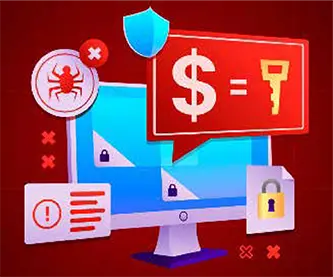
Bank News & Financial Literacy
Noteable Scams and How to Avoid Them
According to the most recent data from the Federal Trade Commission, reported consumer losses to fraud reached $8.8 billion in 2022, marking a 30 percent increase from 2021. It was observed that younger adults (ages 20-29) reported more frequent occurrences of financial loss compared to older adults (ages 70-79). However, when older adults did experience financial loss, the amount lost was greater.
With the rise of digital economy, scammers have expanded their reach through social media, text messages, phone calls, and emails. Online payment platforms, apps, and marketplaces have also provided increased opportunities. FNC Bank is dedicated to helping keep your data safe! The following outlines some common scams you should be aware of.
Text and Email Scams
When encountering suspicious text or email scams, it is crucial to exercise caution. Experts in the field recommend taking a moment to gather oneself and verify before taking any action. Instead of clicking on unusual links, it is advisable to visit the official site directly or contact the provided phone number listed on the official website. Although this approach may take a few extra seconds, it can potentially save a significant amount of money.
Notable Social Media Scams
Investment Scams
An investment scam refers to any get-rich-quick scheme that targets individuals through social media accounts or online advertisements. These scammers often provide "testimonies" from other social media accounts to create an illusion of success. Be cautious when dealing with investments, especially those involving cryptocurrency. The Federal Trade Commission (FTC) advises conducting independent research on the company and searching for online reviews or scam reports.

Quiz Scams
Be wary of quiz scams that seem harmless and ask questions about topics you're interested in, such as your car or favorite TV show. These quizzes may also include personality tests. Unfortunately, scammers can use the answers you provide to guess security questions or compromise your social media accounts by sending malware links to your contacts. To protect your personal information, the FTC suggests avoiding online quizzes altogether and using random answers (words you'll remember) for security questions.

Romance Scams
One prevalent type of scam is the "romance scam," which preys on lonely and isolated individuals over an extended period, sometimes even years. Experts advise individuals to remain vigilant if approached by an exceptionally attractive new social media friend who suggests using WhatsApp to communicate, tries to isolate them from friends and family, or becomes overly romantic too quickly.
TIP: Try using a reverse-image search to see if the person's photos are used elsewhere online.

Marketplace Scams
When buying or selling products on platforms like Instagram or Facebook Marketplace, exercise caution. Not all potential buyers or sellers have good intentions. The FTC recommends taking certain measures to avoid scams. For sellers, it's important to check buyers' profiles, refrain from sharing codes sent to your phone or email, and be cautious when accepting online payments from unknown individuals. As a buyer, make sure to thoroughly research the seller, verify their profile, read reviews, and review the terms and conditions before making a purchase.
Remember, staying vigilant and informed can help protect you from falling victim to various scams.


